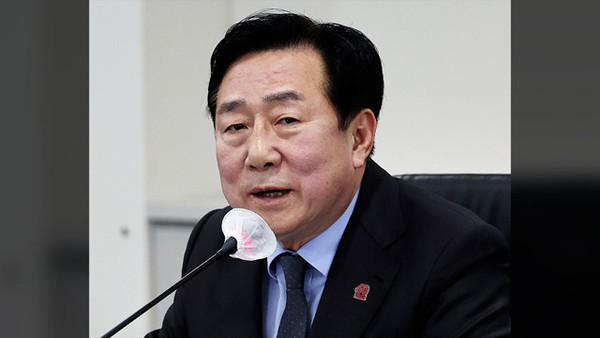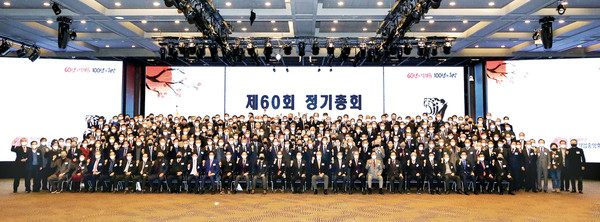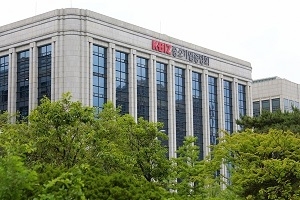Interview with Chairman Kim Ki-mun of Korea Federation of Small and Medium Business (KBIZ)
By Kevin Lee
“The total sales of Korean companies is similar between large companies and SMEs at 52% versus 48%, but in terms of profit margin, large companies take 57% of the total operating profit and SMEs only account for 25%. As a result, the polarization problem is escalating to the highest level this year,” said Kim Ki-moon, chairman of the Korea Federation of Small and Medium Business (KBIZ).
In an interview with the Korea Post media, Chairman Kim said, “For the remainder of my tenure, I plan to focus on resolving this polarization problem and resolving the three negative issues in the new economy to realize a leading economy.”

Chairman Kim also said, "We plan to make efforts to pursue policies that focus on prevention rather than punishment so that the Act on the Punishment of Serious Disasters can work in the field.“
The following are excerpts from the interview with The Korea Post by Chairman Kim Ki-mun of KBIZ.
Question: Would you introduce yourself in detail?
Answer: KBIZ was established in 1962 in accordance with the Small and Medium Enterprises Promotion Policy to represent the rights and interests of 6.63 million small and medium-sized enterprises (SMEs), improve their economic status, and pursue balanced development of the national economy.
KBIZ, which has shared the lives and hopes of small and medium-sized enterprises (SMEs), which account for 99% of the total number of businesses and 83% of the number of employees, has made history of SMEs and the Korean economy by creating an environment where SMEs can focus on management and strengthening their status.
Q: It has been three years since you were elected as the president of the KBIZ in February 2019. Since your inauguration, you have made various efforts for small and medium-sized enterprises. Would you introduce some of them?
A: Three years ago, I made a promise to create a confident small and medium-sized business association. Related to this, I am putting those promises into practice one by one.
First of all, we have been making steady efforts to come up with policy alternatives in the reality that small and medium-sized enterprises (SMEs) do not receive fair compensation from the government and public institutions as well as large enterprises.

Accordingly, in December 2019, the party, government and Cheong Wa Dae selected the KBIZ as the organization having the right to consult the supply unit price adjustment, and the National Assembly prepared a legal basis so that the KBIZ can directly exercise the right from last April.
As we are facing an unprecedented crisis of COVID-19, we have been developing various businesses to respond to it.
We formed the COVID-19 Mid-term Countermeasures Headquarters and conducted the Good Lessor Campaign, a nationwide tour meeting, and support for quarantine supplies for cooperatives.
In addition, we delivered the voices of difficulties faced by small and medium-sized enterprises (SMEs) to Cheong Wa Dae, the government, and the National Assembly, helping them make proper policies and improving them.

Q: Various regulations such as the enactment of the Severe Disaster Punishment Act and the implementation of the 52-hour workweek are pouring in this year. What is your opinion on these matters?
A: When politicians make various regulations, it is clearly a good idea, but the impact on businesses and the national economy should be thoroughly analyzed over time.
In the case of the Severe Accident Punishment Act, even in the small and medium-sized business community, the importance of life, safety, and prevention of industrial accidents is fully sympathized with, but the current law is highly likely to stifle corporate management motivation.
Korea has already applied the Occupational Safety and Health Act and the Criminal Act related to occupational safety, and the level is the highest in the world.
In addition, since the current Serious Accident Punishment Act presupposes that industrial accidents are unconditionally the responsibility of the employer, we plan to make efforts to change policies toward ones that focus on prevention rather than punishment so that detailed action tasks that take industrial characteristics into account can work in the field.
Also, in relation to the 52-hour workweek, local root companies are causing great confusion in the field of small and medium-sized enterprises (SMEs) to the extent that they exchange employees with competitors to meet deadlines even though they have trade secrets.
Fortunately, the amendment bills including the extension of 6 months of flexible working hours and the extension of 3 months of optional working hours were passed thanks to the continuous suggestion of the KBIZ. We will come up with supplementary legislation to allow additional overtime work on a monthly and annual basis.
In addition to this, the KBIZ will take the lead in correcting laws and systems that impede business activities of small and medium-sized enterprises (SMEs).
Q: What areas do you plan to focus on the most during the remainder of your tenure?
A: The three negative issues in the new economy is a structural problem that makes small and medium-sized enterprises difficult. They are 'unfair trade' on the unit price of delivery between large and small businesses, 'market imbalance' between large retailers and smaller retailers on/offline, and the lowest price bidding practice in the procurement market. They mean 'irrationality of the system'.
First, in the case of ‘unfair trade’, raw material prices are skyrocketing, but large companies are delaying the next day and not raising the unit price of delivery.
This is why it is very urgent to strengthen the effectiveness of the delivery unit price adjustment consultation system and introduce a delivery unit price indexation system.
In addition, although the online market has more than doubled in the past three years, there is also a serious ‘market imbalance’, in which the profit distribution structure is distorted and the difficulties of small and medium-sized enterprises increase due to excessive fees.
As a solution to this, we plan to promote the enactment of the ‘Online Platform Fairness Act’.
The ‘irrational system’ needs to be improved through the revision of the National Contract Act, which removes the lowest price inducement clause in the procurement market. Excessive anti-fair sanctions also need to be realized.
Q: Lastly, is there any message you would like to convey to the readers?
A: In the midst of a pandemic, our society is experiencing rapid changes in non-face-to-face and digital environments. Now, our SMEs will also have to change and adapt quickly.
In situation, where there is a great transition offline and online, the traditional manufacturing industry has come to an era in which survival is not guaranteed unless they prepare for industrial structure change to secure new food.
We will actively seek solutions through policy development and service provision that can be experienced in the field.
As Korea's best economic organization that creates value and happiness for SMEs and fulfills its social responsibilities, we will stand by your side.

